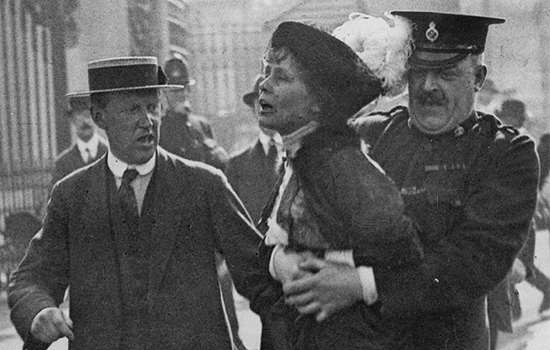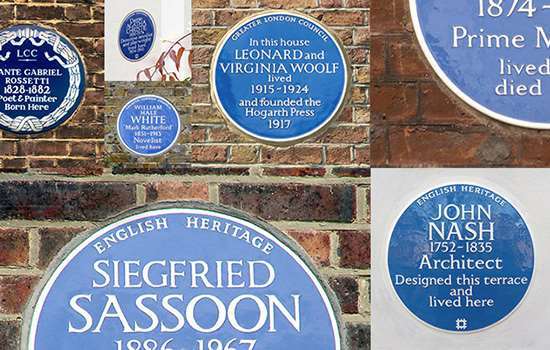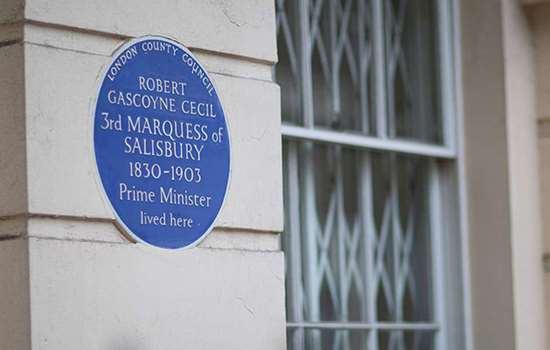GARVEY, Marcus (1887-1940)
Plaque erected in 2005 by English Heritage at 53 Talgarth Road, Barons Court, London, W14 9DD, London Borough of Hammersmith and Fulham
All images © English Heritage
Profession
Pan-African Nationalist Leader
Category
Philanthropy and Reform, Politics and Administration
Inscription
MARCUS GARVEY 1887-1940 Pan-Africanist Leader lived and died here
Material
Ceramic
The Pan-Africanist leader Marcus Garvey is commemorated with a blue plaque at his final residence, 53 Talgarth Road in Hammersmith.
PAN-AFRICANIST PIONEER
Marcus Mosiah Garvey was born in Jamaica, where he founded the Universal Negro Improvement Association in 1914, soon after making his first visit to London. He moved to New York in 1916, where he founded the Black Star Line steamship corporation, a pioneering black business enterprise which encouraged the African diaspora to return to their ancestral countries. He also started a militant weekly, Negro World, which became the major outlet for the art, culture and political writings of the Harlem Renaissance.
Garvey was later found guilty of fraud arising from the promotion of Black Star, and served time in a US prison, though it seems the conviction was politically motivated. He was deported to Jamaica in 1927 and, after making another short visit to London in 1928, moved to the capital permanently in 1935. He was unimpressed with the opportunities on offer to black people at that time and found that the damp climate worsened his bronchitis and asthma.
Despite this he was a regular at Speakers’ Corner in Hyde Park and had offices at 2 Beaumont Crescent, Hammersmith. He lived nearby at 53 Talgarth Road from around 1937, initially with his wife Amy Jacques (1896–1973) and their children. His family returned to Jamaica and latterly he was cared for by his secretary, Daisy Whyte. He died at the address on 10 June 1940.
LEGACY
Garvey was, and remains, a controversial figure. Behind his promotion of the ‘Back to Africa’ movement were separatist assumptions that do not chime with the societal ideals generally held today. However, his encouragement of black pride and self-confidence was an inspiration to many, including Kwame Nkrumah, and in Jamaica he is regarded as a national hero. Garvey’s connection with London remains a lesser-known aspect of his life, though the English Heritage plaque – erected in 2005 at first-floor level, where he had his bedroom and library – has done something to rectify this.


